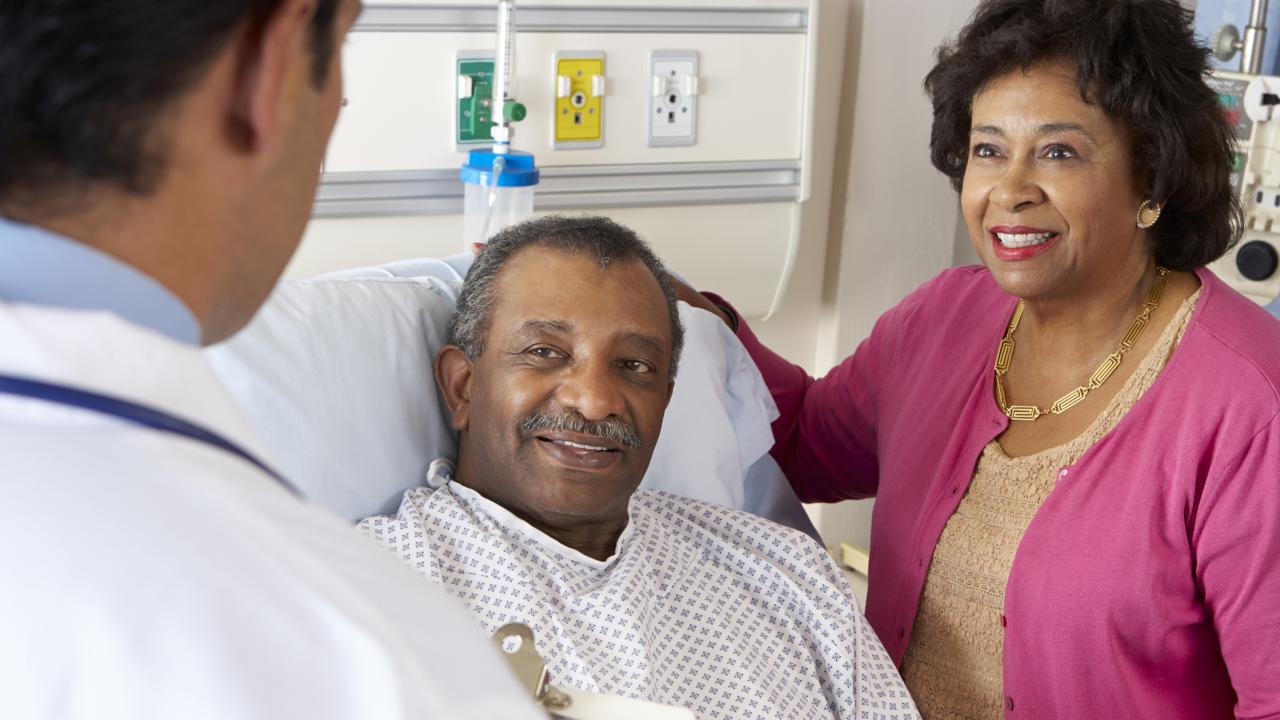
Frequently Asked Questions
For patients with severe coronary artery disease (blocked arteries to the heart), both Percutaneous Coronary Interventions (PCI) that inserts tiny tubes (stents) to open up the blockages and Coronary Artery Bypass Surgery (CABG) that uses arteries and veins to bypass the blockages, effectively improve blood flow to the heart. Some patients are only eligible for PCI, while others are clearly best treated with CABG, based on the severity of their coronary disease. However, many patients can be treated with either approach and defining the best treatment for those types of patients is why RECHARGE is being done. Both of these procedures are FDA-approved methods of treatment.
Randomized trials are done when there are multiple ways to treat a disease and we don't know which is best. To learn what is best and safest, we randomize (e.g. "flip a coin") to either treatment. By studying safety and efficacy outcomes for people in both groups, we learn which treatment is best. This helps future patients choose treatment based on scientific evidence from people like them.
While multiple studies have compared these specific cardiac treatments (PCI and CABG), very few women, Blacks and Latinos have been included in those studies. Thus, when women, Blacks and Latinos need, with their doctors, to decide between PCI and CABG, there is very little scientific evidence available to help guide that decision. By only including women, Blacks and Latinos, RECHARGE will provide the evidence to support future patients’ choices knowing the outcomes for people like them.
As described above, both treatments are commonly used to restore blood flow to the heart and we don’t know which is best for patients like you. While doctors often make recommendations for one or the other, they are only recommending you to participate in the trial because they think either would be a good treatment option for you. That is why you will be assigned treatment by a ‘coin-flip’ so that the study can fairly compare the two treatments. Your health and safety are our top priorities, and no matter which treatment you get, we will closely monitor your progress and wellbeing. Also, if at any time it appears that one procedure is better than the other, you will receive the best treatment, even if it is different from the one you were assigned.
The only reason that you have been invited to participate in this study is that you need a procedure to restore more blood flow to your heart. Both treatments are good at restoring blood flow to the heart. If your doctor thought that one procedure was clearly better than another, you would not have been invited to participate in the study. If you have concerns about one procedure being better than the other for you, please discuss that with your doctor.
Your doctor believes that you would benefit equally from both procedures. Getting one procedure or the other will not impact the clinical care that you receive from your heart team.
Only the initial randomization is being selected by chance. You and your doctors will be able to make all other clinical decisions to be sure you get the best care possible.
If you would like more information than is available on this website, we are happy to provide additional resources and information about the trial. Please ask your doctors or contact us at RECHARGE@med.cornell.edu
We encourage you to speak to your family in advance of participating in this study.
Whatever treatment you are assigned will not impact your access to future procedures. If you need additional procedures in the future, you and your doctors will not be restricted from doing those because your health and welfare always comes first
Personnel involved with the study will interview you before your procedure, and standard blood work, and electrocardiogram and echocardiogram (sound wave test of the heart) will be done. At 12 months you will need to return to either the hospital or an outside medical facility for repeat blood draw and an echocardiogram. All of the rest of follow-up, which occurs at 1, 3, 6, 12, 18, and every 6 months until 5 years, and then once yearly thereafter until 10 years.
Please reach out via email to Recharge@med.cornell.edu or call +1(212)746-1815 to reach a member of our team who can connect you directly with your local site.
Featured Media
Watch the exclusive segment from Good Morning America where the RECHARGE Trial was showcased. Hear firsthand from Dr. Mario Gaudino and Jaleesa King Rudder:
Tune into New York-Presbyterian’s Advances in Care podcast featuring Dr. Mario Gaudino, where he delves into this groundbreaking trial.